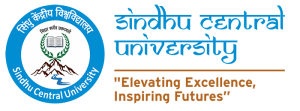IIT Madras will be among top 100 global universities by 2025
After being crowned the best institute in the country in engineering and overall category for the eighth and fifth time in a row, IIT Madras director V Kamakoti speaks to Ragu Raman about the next big leap for the institution as well as steps being taken to foster innovation, entrepreneurship and mental wellness on campus.
Excerpts
What will be the next big leap for IIT Madras now that the NIRF rankings for 2023 have placed you in the top slot again?
We are looking to strengthen our BS data science and BS electronic system programmes, which we believe will provide quality, affordable, accessible and equitable education to all. That’s going to be the next biggest turning point for us. Our new BS degree and PhDs in medical sciences and engineering will be a giant leap for us. Medical science is the next computer science. People who realise and join this course will benefit. We have tied up with six hospitals and have many more hospitals that want to collaborate. This is going to be the pathbreaker.
When will the Tanzania campus of IIT Madras be opened?
We are looking at opening in October. In the next five years, we plan to offer four UG programmes including data science and five PG programmes including marine engineering. All the courses will be offered in the offline mode.
What sets IIT Madras apart from the rest of the IITs?
We have made significant progress in teaching and learning, research, outreach, and perception. It is the cohesive effort of the faculty, students, and the central and state governments. We are on the right path. Now, we have to respond to every academic
and technological need of the country. We have launched 15 centres of excellence in areas such as maritime, deep electronics, energy systems, lean construction, quantum information, sports science and analytics. These are the major areas identified for research
Why is there so much stress on interdisciplinary education?
School students decide on careers without fully understanding the subjects they have chosen in college. Some for example do engineering because they get marks in certain subjects in schools. Interdisciplinary courses give students the option to pursue
their passion at the end of the second year. At the end of five years, they get an interdisciplinary degree. For example, a student doing BTechin computer science can pursue MA in public policy. This opens up new opportunities. I believe IIT Madras
will be a sought-after college for undergraduate students. IIT Madras offers 15 interdisciplinary programmes including quantitative finance, public policy, and cyberphysical and energy systems.
In the wake of recent student suicides, IIT Madras conducted mental health survey among students.
We did a mental health survey of more than 6,000 students. Now, we are surveying the staff and faculty. We found about 3% are under some sort of stress. We now have independent counsellors for the students. We have collaborated with the Kauvery
Hospital group for this. The counsellors function independently of IIT and our students are free to speak to them. Counsellors are also available at their doorstep. We have also set up systems such as behappy.iitm.ac.in. We hope to have a comprehensive system in place before the start of the next academic year.
What are the expansion plans for IIT-M’s rural interaction centres?
We have 180 rural information centres, each equipped with a TV, camera and internet connection to provide tuition to students. We are planning to start 1,000 such centres and at least 400 of them will be in Tamil Nadu. Many state universities and government colleges slipped in the NIRF rankings this year. We have Presidency College in the third position in the college category. Anna University also improved its ranking. There is a need to invest in infrastructure. The state government must look at it. People should stick together and work together. Unless there is cohesiveness, we will not scale in rankings.
What is your view on Tamil Nadu’s attempt to draft a State Education Policy in place of a National Education Policy?
Multiple policies can exist, and we can take the best of both. A policy is merely a guiding document. Education is driven by placements and industry needs. Higher educational institutions need to be aligned with the needs of the industry and country.
Do you see IIT Madras breaking into the top 100 global universities’ ranking?
Two important parameters in which we lack are the number of foreign students and foreign faculty and perception. With Tanzania opening in October, I hope the world will recognise our globalisation efforts. I am sure we can break into the top 100.
We expect to do it in two years.
When will the initiative to train government school students in electronics take off?
We will train students from 252 government schools on the fundamentals of electronics this June. Around 25,000 students will come out with deep grounded foundational knowledge in electronics every year. We have many government school students enrolled in our BS data science programme as well.
Do you see a role for IIT Madras in mentoring other higher educational institutions in Tamil Nadu?
Yes. Through our 10X programme, we are helping other colleges incubate ideas and mentor startups.



Leave a Reply
Want to join the discussion?Feel free to contribute!